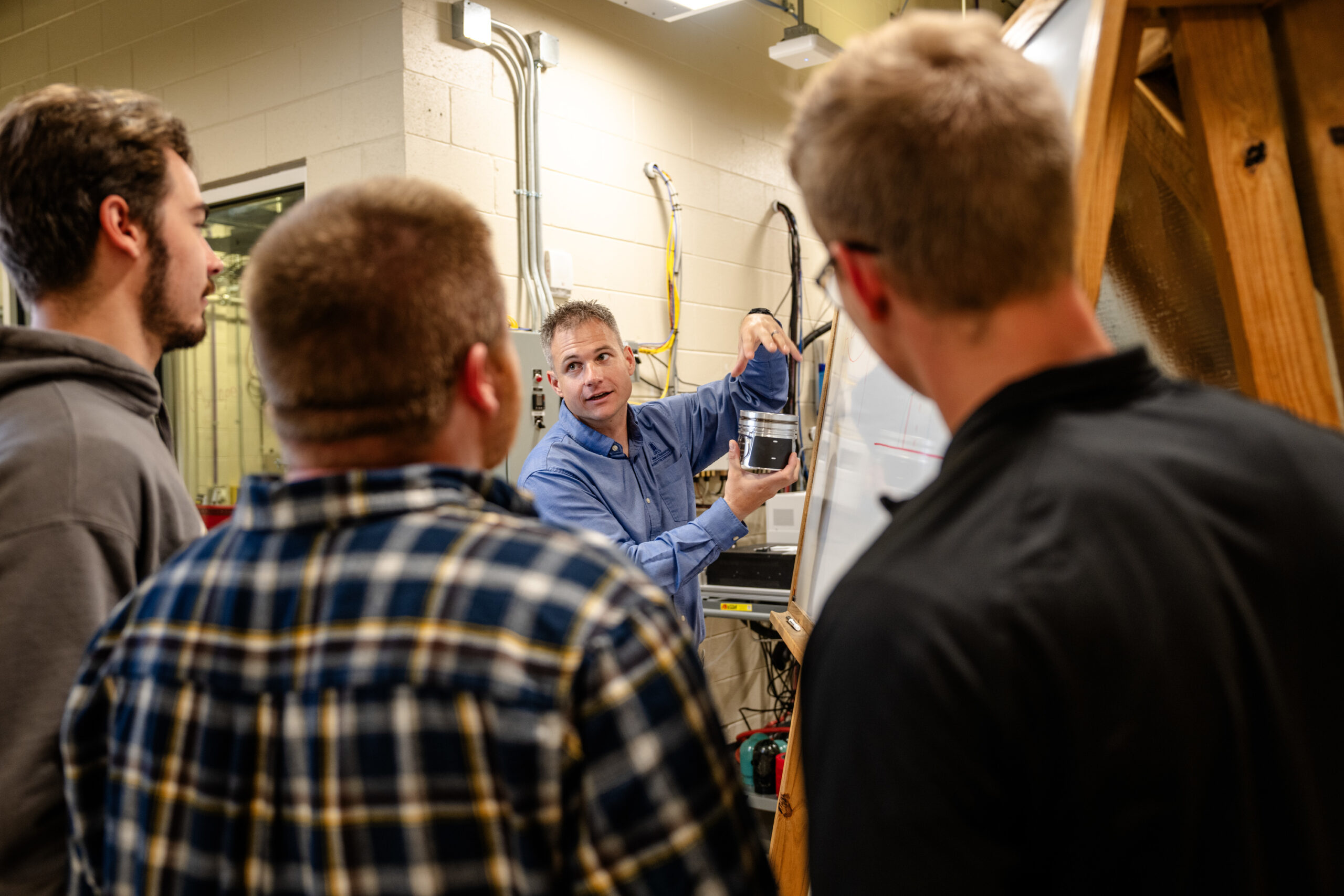Dr. Adam Dempsey, assistant professor of mechanical engineering in the Opus College of Engineering, has been awarded $2 million from the U.S. Office of Naval Research to develop a naval combustion system that works with a wide range of lower carbon intensity fuels to reduce greenhouse gas emissions.
The engines in question currently operate on naval F76 diesel fuel, but Dempsey and his team set out to develop a system that allows a wider range of fuels, such as jet fuel, sustainable aviation fuel, methanol, hydrogen, ammonia and others. Maintaining compatibility with F76 is critical for battle and operational resilience for the armed forces.
“There is an imminent need to reduce greenhouse gas emissions from all transportation and power generation sectors, including naval marine vessels, and current propulsion system alternatives face many challenges,” Dempsey said. “The most pragmatic and impactful way to decarbonize is by using low carbon intensity fuels. The commercial maritime industry is moving quickly to decarbonize their internal combustion engines, but they are either dual fuel and not capable of operating solely on a low carbon fuel, or are designed around a single low carbon fuel and are not fuel flexible.”
This grant will fund work on the concept of prechamber enabled mixing-controlled combustion with a fuel reformer. The goal is to maintain diesel engine operational characteristics and efficiency, without sacrificing performance, while offering fuel flexibility and operational resilience — meaning the vessel can run on essentially any fuel and still complete its mission. This will provide operational endurance and an opportunity for dramatic decarbonization when operating on lower carbon fuels, Dempsey said.
“Dr. Adam Dempsey’s leadership in this important research collaboration with the U.S. Navy will help create a healthier planet while also supporting our Navy’s resiliency and continued innovation,” said Dr. Kristina Ropella, Opus Dean of the Opus College of Engineering. “I am grateful for Dr. Dempsey’s pragmatic approach to solving these complex problems in combustion research.”
Dempsey and Dr. Casey Allen, associate professor of mechanical engineering, will lead the project with additional partners at the University of Wisconsin-Madison and Precision Combustion, Inc.
The Office of Naval Research is the catalyst of future naval power, ensuring technological dominance for the U.S. Navy’s fleet and force. With a workforce that includes some of the top Ph.Ds. and engineers in the world in their fields, ONR finds the best minds from across the nation and around the globe, sponsoring new research and creating new capabilities for America’s sailors and marines.



